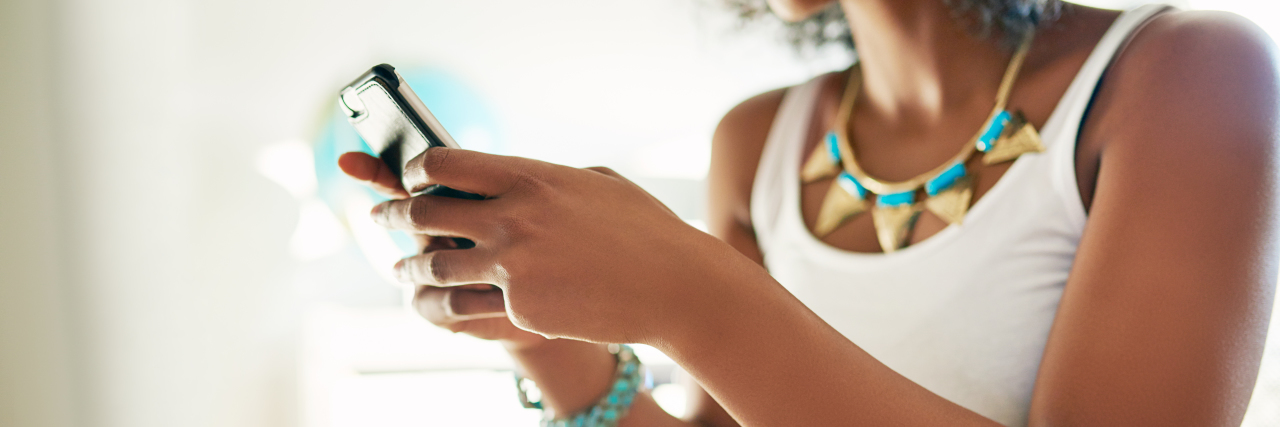How the Proposed Social Media Monitoring of Disabled People Reflects Abled Privilege
If you’re upset by the Trump administration’s proposed policy on reducing disability income fraud by monitoring and flagging an individual’s social media activity, you aren’t alone. The policy presents a cookie cutter image many Americans have of disability, and their expectation of disabled individuals to perform disability in a manner that is consistent with able-bodied perceptions.
Over the last two years we have seen an uptick in activity on #privilege hashtags. These metadata tags note people discussing privilege, yet often failing to see how it applies or exists. Trump’s proposed policy perfectly defines privilege. Assuming you do not have a disability, and excluding any other factors that might impact your access to social media (such as internet speed, equipment etc.), you are able to wake up, post your gym selfies and enjoy your life. Social media monitoring would deprive disabled people of the ability to safely engage in this common activity.
Disabled individuals do not elect to be disabled. This is not a choice. Disabled individuals need disability benefits for a variety of reasons, including discrimination against their unique needs and bodies, lack of accessibility and their healthcare needs and function. The choice is not theirs, and if you think it is, you’re one car accident away from finding out.
I’ll bring to light the case of Paul Longmore, a history professor and polio survivor. Longmore received his Ph.D. by self-paying, one course at a time, because he was not allowed to receive a funded Ph.D. slot (the traditional route) or royalties from his writing. You may be asking, why didn’t Longmore just get a job and get off disability benefits? Longmore did not require the income of disability support — he needed medical assistance.
Longmore’s status as a disability income recipient provided the $20,000 a year ventilator that allowed him to breathe and live, as well as a funding for a personal care attendant to physically transfer him from bed to chair and attend to “activities of daily living,” the most basic privilege you probably take for granted — like using the bathroom alone or being able to get out of bed. Personal care attendant services are only available through Medicaid, and not covered by private insurance, so Longmore had to limit his income to keep his care.
When Longmore finally published his first book as a Ph.D. student, he was unable to receive any royalties (which he wanted to use for tuition) because of income limits. Thus, he held a party and threw the book into the bonfire, then writing the famous essay “Why I Burned My Book.”
But you’re probably saying, “Amanda, Trump is not talking about learning, he’s talking about going to the gym and being physically active.” Yes, he is. Individuals with disabilities are not necessarily incapable of physical activity; in fact, many require exercise to be healthy just like able-bodied people. For example, individuals with Down Syndrome are up to 70 percent more likely to be obese, due to the overproduction of the hormone leptin. Coupled with lack of exercise, this can result in diminished quality of life as well as early mortality rates. There have recently been numerous successful programs and studies which have reduced obesity and mortality in the Down syndrome community through physical exercise. These programs have also increased social interaction and helped individuals living with Down syndrome gain increased social skills.
If you have the good fortune of knowing or loving someone with Down syndrome, then you know they may or may not be able to hold a full-time job or produce an income that allows them to live an independent life above the poverty line. Thus in this case, and many others, the disabled individual is three-dimensional. They are unable to maintain gainful employment or need assistance with the activities of daily living, but still can benefit and even improve their circumstances by exercise, all of which would put them at risk of losing their disability benefits under this proposal.
How is this privilege? Marginalized bodies and individuals know the world is watching, and experience the “two-ness” of having an identity the dominant culture does not understand. As W.E.B. DuBois stated, “It is a peculiar sensation, this double-consciousness, this sense of always looking at one’s self through the eyes of others, of measuring one’s soul by the tape of a world that looks on in amused contempt and pity.”
People with disabilities experience the world in a way that is different from the privilege of being able-bodied, the privilege of doing self-care, self-expression, and doing something as simple as exercising. As Frantz Fanon stated of his experience as a black Parisian in the 1950s, he felt the native white Parisians’ eyes “placing a burdensome weight upon me, one that left me uncomfortable in my own skin.” To paraphrase, the burden of the constant looks and double consciousness made him feel constantly excluded from society.
Other scholars describe the above sentiments as feeling like they are behind a screen being viewed, which in this case is particularly appropriate since we are discussing social media monitoring of marginalized bodies.
Disability isn’t what many non-disabled people think it is, including and especially those in government who want to conduct surveillance of disabled people. Disability can vary from day to day, person to person, and task to task. It is dynamic and fluid, whereas discrimination and ableism provide a static dependability to consistently find new and creative ways to own marginalized bodies.
Getty photo by Flamingo Images.

